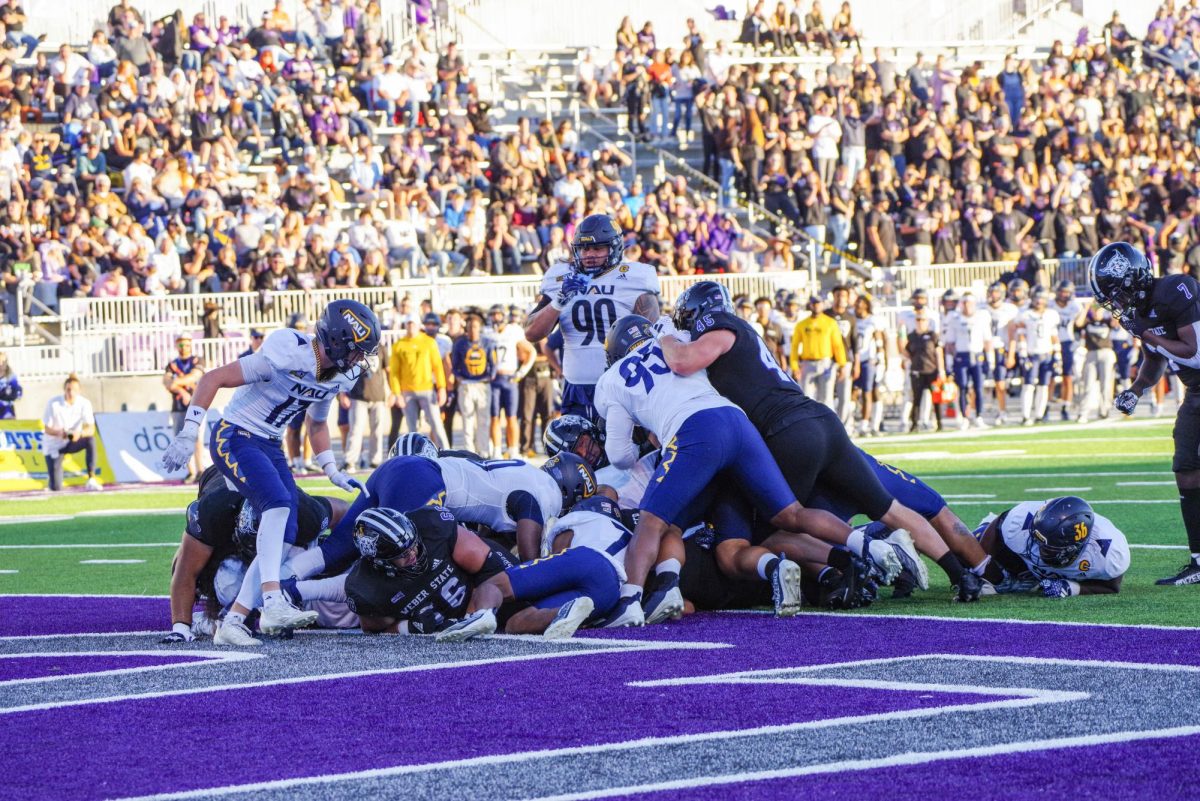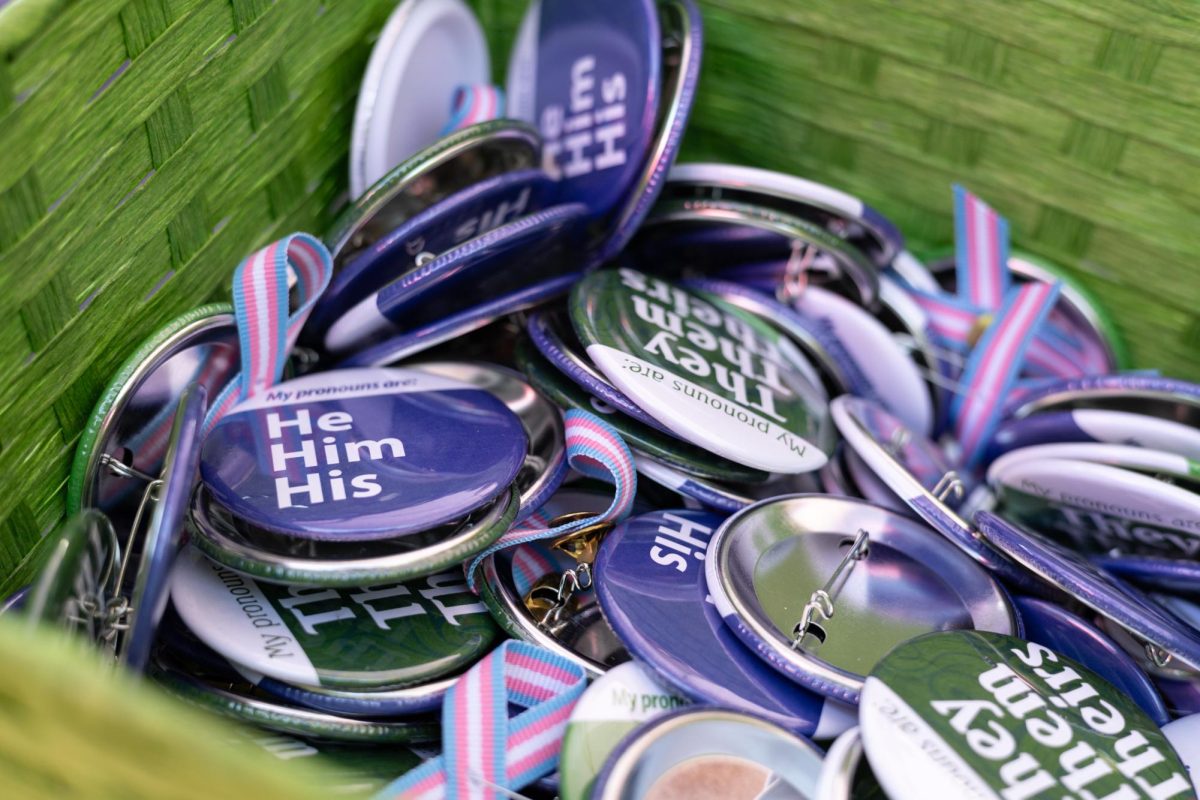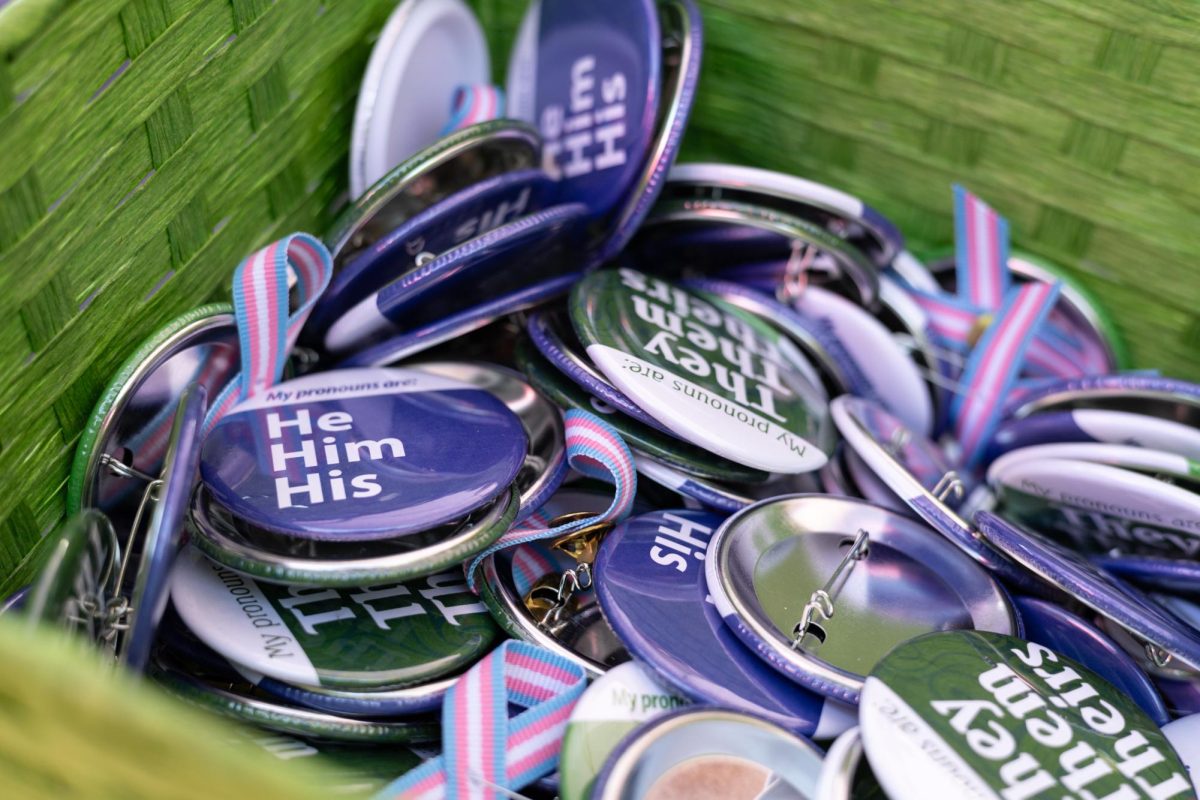 A plan is moving forward to expand Weber State University’s policy on recording professors’ lectures. The plan presented in the WSUSA Senate meeting last week would clarify what the policy is for and require written permission before distributing any recordings.
A plan is moving forward to expand Weber State University’s policy on recording professors’ lectures. The plan presented in the WSUSA Senate meeting last week would clarify what the policy is for and require written permission before distributing any recordings.
The policy currently requires students to obtain a professor’s permission before recording lectures. The policy would specify verbal permission for recording and written permission for posting or distributing the recording.
Last spring the faculty Senate asked the Admissions, Standards and Student Affairs Committee to reword the policy to better reflect the intent and expand it to cover new technology. The committee approved the changes last week.
Associate Director of the Technology Commercialization Office Patrick Thomas, who reviewed the policy, addressed student Senate on Monday. He said he wanted to provide context for the reasoning behind the change.
“What motivated the wording was asking, ‘Can we provide students with a reason that we’re requesting they ask their professors to make a recording and can we do it in a way that’s reasonably convenient?’” Thomas said.
The reason for requiring written permission before posting or broadcasting a class is to protect students, Thomas said.
“If a situation becomes sensitive and it gets broadcasted, then (a) student has a written contract,” Thomas said. He added that the policy is about protecting the rights of the professors and of other students in the class to avoid conflict.
Thomas explained all they are doing is asking students to get their professors’ permission before they record, which he says is not asking a lot.
“No one wants a lawsuit,” he said.
The proposed changes to the policy caused some student senators to question whether Weber State should prohibit recording at all.
Director of Student Involvement & Leadership Aaron Newman said many universities have abolished their no recording polices.
Lori McDonald, the Dean of Students at the University of Utah, said she wasn’t aware of any policy in the student code that prevented recording of lectures.
Thomas said that in preparing the changes, he looked at others schools’ policies, but said he did not find any policies at schools in Utah that were on point. Among other institutions, he reviewed policies at Georgetown Law School and the University of Chicago. He said he focused on law schools because they had a better grasp on the law.
Senators mentioned that many students aren’t even aware of the policy.
“Bottom line is, I see it as a way for faculty to avoid being held accountable,” said Cash Knight, the athletic senator, who noted he was speaking as an individual, not setting a position as a senator.
WSUSA Executive Vice President Jeff Henry said the WSUSA has no official position as a body since it hasn’t been discussed or formally debated, but individual senators are entitled to their opinions on the issue.
Other senators raised concerns about students with disabilities who may have difficulty taking notes or international students who have trouble understanding English. Thomas said students with disabilities would probably be covered under the Americans with Disabilities Act, with recording lectures likely to be seen as a “reasonable accommodation.”
Samuel Hobbs, the traditional student senator, asked if student tuition allows students the rights to make copies to use as a study tool. Thomas responded by saying paying for a class does not give license to make copies of lectures.
Business Professor David Read said he doesn’t allow recordings in order to create a safe place for students to express ideas. Read says he teaches classes that feature a lot of debates. He doesn’t want students to feel like they can’t speak their mind, or be afraid to play devil’s advocate and later be haunted by a YouTube video later.
Read said he would work with students in the case of disabilities or language barriers.
Knight raised a question about what would happen if a student did record a lecture without permission. Thomas said that it would be a case-by-case basis, depending what was done with the recording or what the consequences of the recording was.
Dean of Students at WSU Jeffrey Hurst said in the 11 years he’s been in his position he has never adjudicated or heard a complaint from professors about recording lectures. He said that if he did he would take it on a case-by-case basis and try to resolve issues at the lowest possible level.
Since the faculty Senate’s Admissions, Standards and Student Affairs Committee passed the changes, they will now to go the student Senate. If the changes pass there, they would go to faculty Senate again before going to the Dean’s Council for final approval.



















